Food Pantries are the first line of defense against hunger.

The truth is that food pantries are not perfect. Not anywhere near perfect, actually. And, they never will be. How can they be near perfect when there is often not enough food in the pantry to feed the many people shopping there?
But, they get to be as near to perfection as they do because the people who work in them are often retired, elderly volunteers who really care and have the time to put in extra effort.
And, how can they be perfect when the food is mostly donated food that was on its way to the landfill before some enterprising person snapped it up for the hungry people in the line?
And, the truth is that food pantries, to a certain extent, are neighbors helping neighbors. This is a wonderful attitude.
The positive energy is exhibited in this sharing wonderful world, indeed. Without these wonderful people and their generous attitudes, people would be starving in this great nation of ours. Food pantries are our first line of defense against hunger.
But, often these food pantries which depend to a great extent on the generosity of individuals simply don’t have enough food. Insufficient is the word used.
Because there is little oversight, there is little control. So, a person shopping at a pantry may get enough to eat or may not. The quality of the food has little oversight. So, the person shopping may be getting food which is all out-of-date, or which is food which cannot be eaten by the person needing the food.
An example of this is the person without teeth. People without teeth are very restricted in what they can take because they can’t chew many foods.
Another example is the diabetic person who can only eat certain types of food without health problems.
And, all quality issues aside, there may simply be insufficient food in the pantry to feed the number of people shopping even though a pantry is the first line of defense against hunger.
Personally, in the Good Neighbor Food Pantry, I had a morning when I ran out of food. I simply didn’t have enough food to give to the people. This was an experience I’ll never forget.
Finally, the Hunger Prevention Nutrition Assistance Program people sent down guidelines requiring that pantries serve a three-day-supply of food for each person in the household. HPNAP guidelines required that pantries serve fresh or frozen fruits and vegetables. Pantries were asked to serve whole grain breads and low-fat milk.
This was a wonderful thing which I applauded enthusiastically when I learned about the guideline. However, it was challenging to the many pantries without freezers and refrigerators.
The truth is that pantries everywhere simply don’t have enough food to meet the demand.
What can we do about this? For starters, we can realize that pantries are our first line of defense against hunger in this country.
Then, we can follow up this realization with food donations throughout the year.
One can of something every week helps over time. Find a pantry and give to help those in need. Do you plant a garden in the summer? Add a row for your pantry!
Thank you for what you are doing for those in need.
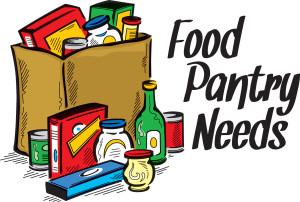
Help the Homeless
The world of people who are homeless may seem very foreign – But, it’s actually very near. We meet people every day who are just like us, only they don’t have a roof over their heads.
We can all find ourselves without a roof when we lose a job. Or, maybe a spouse dies. Possibly an accident which leaves physical disabilities is the cause. In short, all it takes is a personal tragedy.
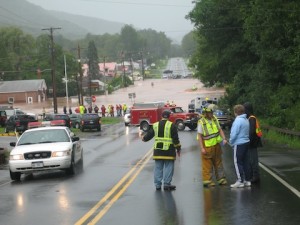 There are many things we can do to help end homelessness. There are many, many things we can do to help those who are struggling with homelessness.
There are many things we can do to help end homelessness. There are many, many things we can do to help those who are struggling with homelessness.
One easy way we can help is to take a little extra food along when we go out of our home to work or on errands. A few extra sandwiches will help. When a person asks for change, offer him or her a sandwich.
A couple of times each year, gather the clothes you are no longer going to wear and donate them to shelters and pantries providing services to help those who are homeless.
While you gather clothes for the homeless, look at your family’s toys, books, and games and select those that are no longer being used. Children living in shelters have few possessions and will enjoy them.
Can you spare an hour or two? Tutors can make all the difference. Volunteer to tutor children in shelters.
Celebrate your birthday or anniversary and ask the people you invite to bring items for the homeless.
Carry fast food certificates with you when you are going out. Hand them out to people who are homeless.
Hold a food drive and take the food to a shelter or a pantry in your area.
Donate your collectable recyclable cans and bottles to people who are homeless. Donate a bag of groceries to a soup kitchen, shelter, or food pantry.
Volunteer at a food pantry or shelter.
Volunteer your professional services. Lawyers, doctors, psychiatrists, counselors, and dentists can all use your skills when you volunteer at a pantry or shelter.
Ask your company, church, school to host a fund-raising event for a pantry or homeless shelter. Items of dignity are really needed by the homeless.
 Thank you for reading this article!
Thank you for reading this article!
Please refer this article to your favorite social media network.
Thurman Greco
PS: The hunger book is really moving along. Things just never get finished as quickly as we all wish. Writing a book requires years and years of research and writing. In writing the hunger book, I have gone through thousands and thousands of sheets of paper and three computers. I have spent years and years getting this story moved from an event in my life to a book which will attract you or not in less than two minutes.
Whew!

Starving Seniors?
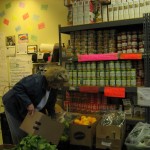 Starving seniors? Is that too harsh a word?
Starving seniors? Is that too harsh a word?
Let’s ratchet it down: hungry.
Or, maybe: food insecure. Yeah, that’s better. It sounds better anyway.
Call it what you want, the event is the same. It’s your grandmother or grandfather (or me…I’m certainly a grandmother) caught in a situation where there’s simply not enough food in the house.
Seniors living on Social Security are finding themselves routinely choose between food and medicine, food and transportation. When they need new clothes, seniors regularly shop at the boutique of the closet.
The issues with seniors and food insecurity are serious because when seniors no longer have the money to buy the food they need for proper nutrition or why they can no longer buy the medicines they need, they become ill and finally end up being cared for by their children or they end up in a nursing home.
I know many stories about:
The older woman in Woodstock living on mashed potatoes.
The older woman in Bearsville who ended up in a nursing home when she was cut off from her pantry take out food and didn’t have the resources or physical ability to get to a grocery store.
The older man who doesn’t have enough money for food and is slowly starving to death.
There is food available for all these people
if they can get to a pantry
if they can connect with a pantry offering take out food
if they can sign up for SNAP (food stamps).
I recently spoke with a retired friend. “Richard, do you get SNAP?”
“No.”
“Why Richard? SNAP is usually easy to get. All you have to do is apply.”
“Well, I’m getting by without it. Let someone else, needier than me, get the money.”
“Richard, think about getting SNAP. This is something you paid for with your taxes. Why leave money on the table?”
I haven’t convinced him yet. However, we’re not through negotiating. As seniors, we’re in a situation where every little bit helps.
The barriers to SNAP for seniors are great. Seniors resist going to a pantry, soup kitchen, getting SNAP until they simply can’t resist any longer. I know the feeling. We grew up as children and went into adulthood feeling that if we worked hard and paid our taxes, we would end up okay. We worked all our lives believing this. And now, there simply isn’t enough.
With this event comes feelings of inadequacy and self blame. “I must have done something wrong. Here I am living hand-to-mouth. I don’t even have enough money for food. What did I do wrong?”
I don’t like a whole generation of people blaming themselves. I feel we’re not totally to blame. The rules have changed. Because we’re retired, we’re not in the rules making game anymore. Retirees are somewhat disempowered. Whatever happened to the Grey Panthers?
 Thank you for reading this article!
Thank you for reading this article!
Please refer it to your preferred social media network.
The new memoir about hunger in America will soon be available! I’ll keep you in the loop.
Thanks again for your support!
Thurman Greco
But are they hungry? – Happy Holidays
“How dare you feed this kind of food to these people? If they’re hungry enough they’ll eat anything.”
“That woman has a car and her son has a job. She shouldn’t get pantry food.”
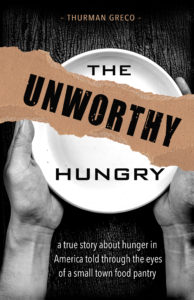
“How dare you serve this much food to those kinds of people?”
The “are they hungry” issue looms large in food pantry conflicts. The fears are many and boil down to this:
1. Financially comfortable people will shop at a pantry when they actually have the money to go to a supermarket.
2. Riffraff are going to take the pantry food and sell it.
3. Many people shopping at a pantry wouldn’t need to come to a pantry if they managed their money better.
Very few people are comfortable with the concept that pantry volunteers give the food away…no strings attached. An unspoken concept here is that the hungry, the struggling class, individually and as a group should be punished for being the downtrodden.
Sometimes when I try to sort the whole thing out in my head, I’m reminded of the chicken yard my grandmother had during World War II. Occasionally, a chicken would be ill and the other chickens would begin to peck at it. If the chicken didn’t get well, it would be pecked to death.
For me, this is simply not an issue. I welcome all shoppers. They don’t have to be destitute although I did see many hungry people in a pantry. Pantry shoppers everywhere routinely endure
long lines
uncomfortable waiting conditions
lack of choice.
The lines in a pantry can routinely be longer than an hour. The hungry wait in line whether it’s raining, snowing, or if there are broiling summer temperatures. Outside pantry buildings, there is little or no protection from the elements.
The hungry wait in these lines to have access to about 30 different food products. Compare that number to a trip to your local super market with it’s 10,000 or more items to choose from.
And, finally, if I ever could take the attitude that hungry people must have done something wrong and don’t deserve that kind of food, I remember the time I foolishly asked a child in line in the basement of the Woodstock Reformed Church about Christmas.
Santa doesn’t come to families that stand in the pantry line.
Thanks for reading this blog/book.
The story is true. The people are real.
Please refer this article to your preferred social media network.

I Don’t Hang Out in Churches Anymore
.
This is the story of hunger in America as only the hungry can tell it.
It began as an outreach activity at St. Gregory’s Episcopal Church in Woodstock, New York. My job was to pass the pantry key from one congregation to the next each month. Total monthly time commitment: two hours. By the time I moved on to another food pantry eight years later, it had become a calling.
From the very first day, I felt compelled to write down things people said to me in the pantry. Trouble is, I’m not a writer and never have been.
So, the prayers manifested themselves. It was all I could do to just keep up with the words.
Obviously, I needed supervision, guidance, mentoring. As I lived this story and began to write it under the direction of Lillie Dale Cox Thurman and Uralee Thurman Lawrence, the story and the people strengthened me. I found that I wanted things for these people. Mostly, what I wanted for these hungry people was the same thing they wanted. What I wanted, (and what they wanted) really, wasn’t much:
I wanted the hungry to sleep with full stomachs at night.
I wanted them to wake up in a dry space in the morning.
I wanted them to have healthcare.
And I wanted them to have jobs which paid the rent, bought food, and covered their transportation needs.
I wanted them to be a part of the community where they lived.
Finally, I wanted their children to be well educated.
My hope is that you will see this book as a glimpse of what I see…a collection of prayers offered as prize crystals or gems to be shared with the universe.
This book is being edited now. I hope to have it finished by the end of the year!
Please send kind thoughts and support on this project!
Cover art by Michele Garner. Thank you Michele. This cover is perfect!
Thank you for reading this blog post.
Please share this article with you preferred social media network.
Thanks,
Thurman Greco
Woodstock, NY
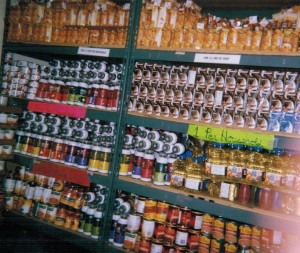
“A Healer’s Handbook” by Thurman Greco is now available on Amazon or at http://www.thurmangreco.com
A Holiday Gone Wrong
“When we talk cooking and eating, we are talking love, since the entire history of how a family loves – when and how they learned to love – can be told in most kitchens.” – Marion Roach Smith
The first year a person uses a food pantry for primary shopping, Christmas is a holiday gone wrong. After several years, Christmas becomes whatever the household can make of it. The adjustment is, for some, difficult and for others more difficult.
The difficulty lies, mostly, in the ability to get food items considered “traditional” by a household when no money is available to purchase them in a grocery store.
Once, I heard some pantry shoppers talking in the line about holidays past. Their conversation centered around people celebrating by eating too much delicious food and visiting with relatives, friends, neighbors while swapping stories, catching up on the news.
For more and more people living in poverty, this just doesn’t happen. Both households and individuals find themselves unable to finance the expense of the holiday event.
Not only can they not afford the food, more and more people no longer have the table to sit at, the chairs to sit on, and the stove to cook the food. Recipes, pots and pans, china, silverware, crystal are long since gone. Eating without a kitchen is the way of the modern household living on a minimum wage.
With luck, today’s struggling class household will have the gas to get the car to a soup kitchen. Otherwise, it’s going to be a regular day with a meal prepared in a crock pot, or on a hot plate. The economic situation for some is that just to take the day off and still be able to buy groceries the next day is more a goal than anything else.
Realities faced by the hungry pantry shopper weigh on my shoulders every day of the year. This weight keeps me squirreling away food so the pantry shelves can be stocked for celebrations with canned soup, canned gravy, potatoes, stuffing mix, canned green beans, cranberry sauce, chicken broth and all the fruits and vegetables that can be gotten at food drives and the food bank. Storeroom space and a few freezers at the food pantry are essential.
Pantry volunteers have a difficult time just keeping up with the ever increasing client census. Those with a stable shopper base, a large storeroom and connections can begin scrounging in July to set aside food. It’s extremely challenging to get several hundred or a thousand of an item in the summer and store the food until December.
After several years and several holidays, the food gatherer in the household becomes, if time allows, more skilled at scrounging for food in both the pantry and the grocery store. The difficulty lies, mostly, in the ability to get food items considered “traditional” by a household when no money is available to purchase the items in a supermarket.
While distributing food, I mentally predict who’s going to be successful at scrounging and gathering by the sound of the automobile as it’s driven into the parking lot of the pantry. A successful holiday dinner depends on a working automobile, time available between jobs, and the energy to sustain the search.
Transportation challenges, disabilities, and serious illness in the family can defeat all efforts.
Thank you for reading this article.
Please share this story with your preferred social media network.
Thurman Greco
Woodstock, NY
Book Update: “A Healer’s Handbook” has been published and is available on Nook and Kindle! It will be available in the paper version in early January. If you order it now, it will be mailed directly to you upon publication.
More information about this book can be found on Thurmangreco.com.
Publication of “The Unworthy Hungry” is now scheduled for January 2018.
Thank you for your support and your patience. Now that “Healer’s Handbook” has been published, there will be more frequent and regularly published articles on all blogs.
Thanks Again
Prayer for the Hungry – Number 1
O GOD
Allow me to serve the hungry with an understanding heart.
Give me the courage to distribute food without strings being attached.
May I never need to keep score.
Give me the physical strength to keep the shelves of the pantry stocked with as much food as we can pack on them.
Please help me to understand the many needs of the shoppers.
Never let me get so tired that I forget that we are all one group – Yours, O God.
Writers’ Boot Camp Inspiration
I’ve been inspired by the Writers’ Boot Camp experience to knuckle down and finish the reflexology book…AT LAST!
So, I’ll be posting on the hunger/food pantry blog every other week for the next few weeks. I hope you are not inconvenienced by this.
Thank you for your patience and your support.
Thank you for reading this blog.
Please refer this article to your preferred social media network.
Don’t forget to join the email list.
Thurman
http://www.reflexologyforthespirit.com
http://www.goodmorningwoodstock.com
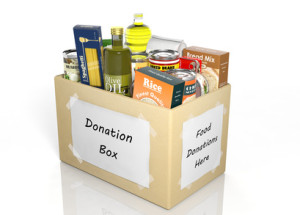 The homeless have problems just like you and me: employment, health issues, disabilities, domestic violence. They just don’t have a roof over their heads.
The homeless have problems just like you and me: employment, health issues, disabilities, domestic violence. They just don’t have a roof over their heads.







